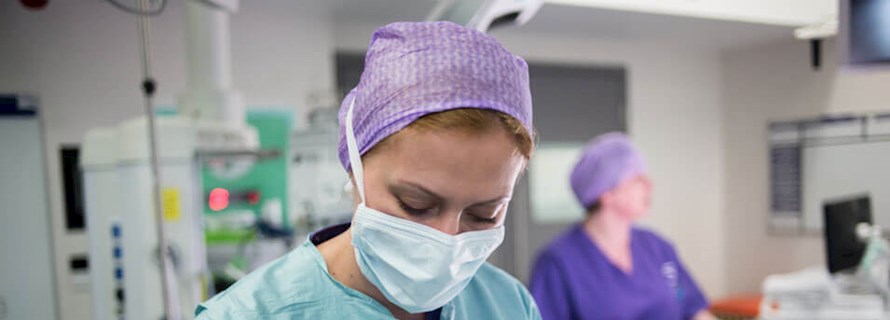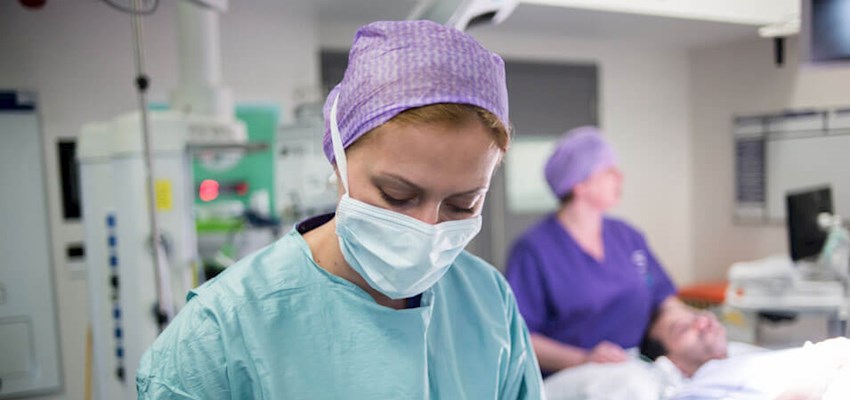Adrenalectomy
Adrenal gland removal
If you have adrenal cancer, HCA UK provides adrenal gland removal surgery to prevent the spread of cancerous cells
About
The two adrenal glands are located above each kidney. Adrenal tumours are rare and most are benign (non-cancerous), however there are two main types of adrenal gland cancer - phaeochromoctyoma and adrenocortical carcinoma.
If you’ve been diagnosed with adrenal gland cancer, we’ll assess you to decide if you need surgery (adrenalectomy) to remove all or part of your adrenal gland.
If you’ve been diagnosed with adrenal gland cancer, we’ll assess you to decide if you need surgery (adrenalectomy) to remove all or part of your adrenal gland.
Need to know
-
What happens icon plus
Adrenalectomy is a procedure to remove your adrenal gland if you have adrenal cancer.It involves removing the tissue that immediately surrounds the affected adrenal gland, as well as the nearby lymph nodes and kidney if the cancer has spread.
There are two main types of adrenalectomy depending on the size of the tumour - minimally invasive (known as laparoscopic or keyhole surgery) which uses one or more small cuts in the abdomen, and open surgery that is carried out using traditional instruments and cuts. -
How to prepare icon plus
An adrenalectomy is generally a safe procedure, however as with any surgery, there are some risks and side effects involved. Your consultant will explain these to you, answer any questions and tell you how long to avoid eating and drinking before hand.
The adrenalectomy is usually done while you’re asleep under general anaesthetic and the area will be closed with stitches or staples.
When the procedure is completed, you may have a drip (infusion) going into your arm to keep you hydrated and help with pain relief. A catheter may also be inserted to help you urinate (pee). You should be able to eat and drink normally once you are fully awake. -
Afterwards icon plus
After the procedure, you will be taken to the recovery unit, where our dedicated team will look after you. You’ll be given pain relief medication if you need it.
You won’t need to stay in hospital long and should be able to go home after one or two days. Your consultant or specialist nurse will let you know when you can leave the hospital.
They will also advise you on how to manage your recovery and when you can get back to your usual daily routines.
You may need painkilling tablets for up to a week after your surgery, as prescribed.
Our endocrine consultants
We're proud to work with leading experts across a range of medical fields, whose skills are matched by their integrity and compassion.




Our locations
From complex surgery to straightforward procedures, we provide exceptional care across our network of hospitals, outpatient centres and specialist clinics.
-
The London Gamma Knife Centre
Platinum Medical Centre
15 - 17 Lodge Road, St John's Wood
London NW8 7JA
Book an appointment
Our team can help with any enquiries or you can make an appointment with one of our experienced consultants.
Call us today
020 7079 4344
This content is intended for general information only and does not replace the need for personal advice from a qualified health professional.